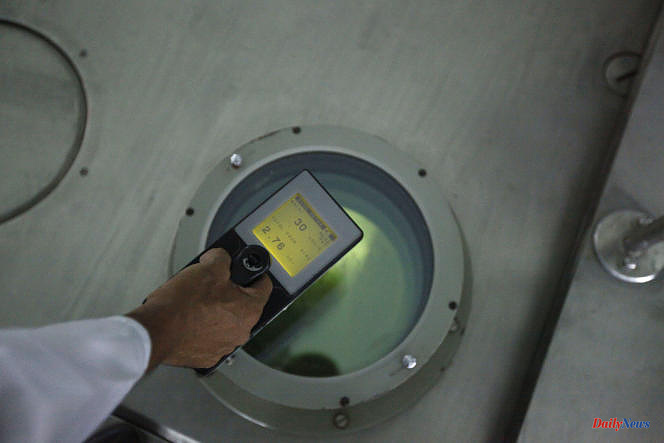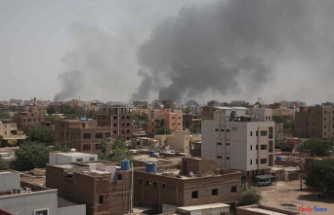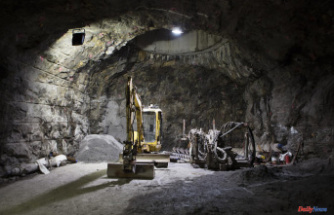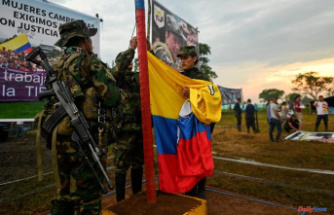One of the two rival camps in a chaotic Libya announced on Thursday March 16 that it had found containers containing around 2.5 tonnes of natural uranium, reported as missing by the International Atomic Energy Agency. (IAEA).
General Khaled al-Mahjoub, commander of the communication directorate of the forces of the Libyan National Army (ANL, of the strongman of the east, Khalifa Haftar), indicated on Facebook that the containers had been found in "Barely five kilometers" from the site where they were stored, in the region of Sebha (south). He posted a video showing a man wearing a protective suit and counting, in English, 18 blue-colored barrels, or all of the uranium that was stored at the site. "The situation is under control. The IAEA has been informed,” General Mahjoub told AFP.
"We are aware of press reports that the material has been found and the agency is actively working to verify it," the IAEA said in Vienna. On Wednesday, it had reported the disappearance of around 2.5 tonnes of natural uranium from a site in Libya, according to a statement sent to AFP. During a visit on Tuesday, UN inspectors "discovered that ten containers with approximately 2.5 tonnes of natural uranium in the form of uranium concentrate [UOC, also known as 'yellow cake'] were not were not present where they were declared by the authorities,” IAEA Director General Rafael Grossi wrote in a report to member states.
The risks of the disappearance of this uranium are "limited but not negligible", said a Western diplomat in Vienna at the time, adding that "the disappearance of nuclear materials poses a problem of safeguards and nuclear security, especially since the site is not under the control of the regulatory authority in Libya".
Chadian and Sudanese factions
General Mahjoub claimed on Facebook that after the containers were found missing during a visit by IAEA inspectors, "an LNA force found them a mere five kilometers from the depot in the direction of the Chadian border". He said the containers were stolen "by a Chadian faction believing them to be arms or ammunition" before being dumped.
Affirming that the personnel responsible for monitoring the site were stationed at a certain distance to avoid exposure to radiation, General Mahjoub called on the IAEA to provide them with the necessary protective equipment so that they could monitor it further. close. "Ensuring the protection of such a site requires a major international effort" to avoid thefts and trafficking to neighboring countries, said a security source in the camp of Marshal Haftar.
Taking advantage of the chaos and porous borders, several Chadian and Sudanese factions have established their rear bases in southern Libya, neighboring their countries, to indulge in various trafficking. Libya has indeed been going through a major political crisis since the 2011 uprising that led to the fall of Muammar Gaddafi after forty-two years of dictatorship. Two governments are vying for power, one based in Tripoli (west) and recognized by the UN, the other, that of Marshal Haftar, based in the east. The UN envoy to Libya, the Senegalese Abdoulaye Bathily, on Saturday called on the two camps to agree on the organization of presidential and legislative elections "by mid-June", with the hope to hold them at the end of 2023.
Muammar Gaddafi had given up his efforts to acquire weapons of mass destruction, including the atomic bomb, in 2003, but a major storage site for uranium concentrate had been discovered in the region of Sebha during the uprising which led to his fall. After a visit to the site in December 2011, in an oasis in the middle of the desert, the IAEA had recommended the sale or the rapid transfer of the barrels of "yellow cake", considering that the storage conditions were deteriorating and that the security of the site was not sufficient. The agency had, however, ruled out that these materials could be stolen due to the size and weight of the barrels.












